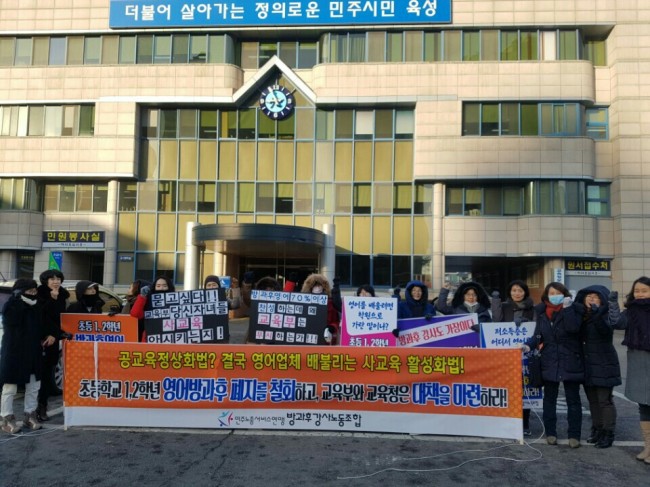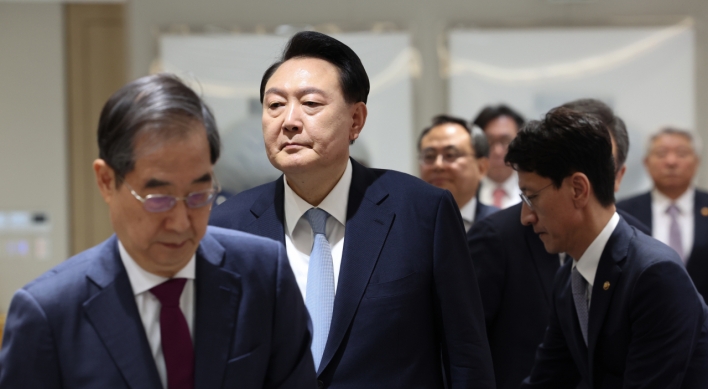[Newsmaker] Ban on after-school English education faces backlash
By Bak Se-hwanPublished : Dec. 15, 2017 - 15:13
Starting from March next year, elementary schools nationwide will be banned from running English education to first and second graders.
The measure’s stated goal is to alleviate study burdens on young students by banning advanced learning. Currently, English is taught from third grade on.
But critics argue it would also lead to the loss of thousands of jobs of English instructors and eliminate low-income students’ access to affordable education.
“My son has received high quality English education after school, three times a week, just for 50,000 won per month. Now, I have to find him a private hagwon or a tutor because the government is axing English from next year’s after-school curriculum,” said a mother of a first grader who lives in Changwon, South Gyeongsang Province.

Another mother of two, surnamed Lee, called the ministry’s decision “a complete nonsense.” Even preschool children are taking private English lessons nowadays, she said.
“What’s the point of banning the most affordable, school-run courses when those private courses are all in tact?” Lee said.
According to a survey published by the Korea Institute of Child Care and Education, nearly 85 percent of 5-year-olds received private education as of last year, with English being the fourth most popular subjects after the Korean language, sports and arts.
For about 7,000 after-school English instructors, mostly of them hired on temporary contracts, it is also a matter of job security.
There are around 130,000 contract teachers who run after-school programs at school nationwide, teaching subjects like English, science, history, art, music and physical education.
English is the most favored subject of all among parents, yet is the only subject to the prior learning ban. History is taught from fifth grade on, yet history-related after-hour classes are not subject to the ban.
Kim Kyung-hee, an after-school teacher and head of the After-school Teacher Union, said the new rule threatens their jobs as well as taking away from their pupils the opportunity to learn English at a minimum cost.
“The majority of the English classes at elementary school are for first and second graders. There was really no consideration whatsoever for contract teachers like ourselves in the government’s decision making, whose livelihood depends heavily on the classes they are about to shut down,” Kim said.
Another teacher, surnamed Jung, who teaches first, third and sixth graders at elementary school in Jinju, some 434 kilometers south of Seoul, said her classes are one of just two English courses available outside the school in the suburb area.
“There is just one private English institute near our school as far as I know, certainly not enough to accommodate all first and second graders even if their parents want to send their children there,” Jung said.
The union’s teachers are planning to stage a rally in front of local education offices to protest the looming shutdown.
Separately, an online petition on the website of Cheong Wa Dae protesting the ban has gathered over 18,000 signatures so far.
“About 240,000 first and second grade students at over 4,800 elementary schools nationwide receive English education through the after-school programs,” the petitioner wrote in the petition, claiming the programs should be allowed to continue.
An official from the Ministry of Education told The Korea Herald that the shutdown will take place as planned next March.
By Bak Se-hwan (sh@heraldcorp.com)








![[KH Explains] How should Korea adjust its trade defenses against Chinese EVs?](http://res.heraldm.com/phpwas/restmb_idxmake.php?idx=644&simg=/content/image/2024/04/15/20240415050562_0.jpg&u=20240415144419)









